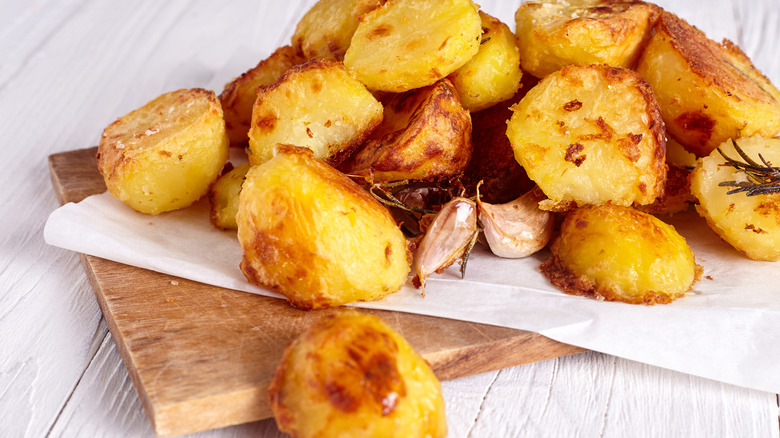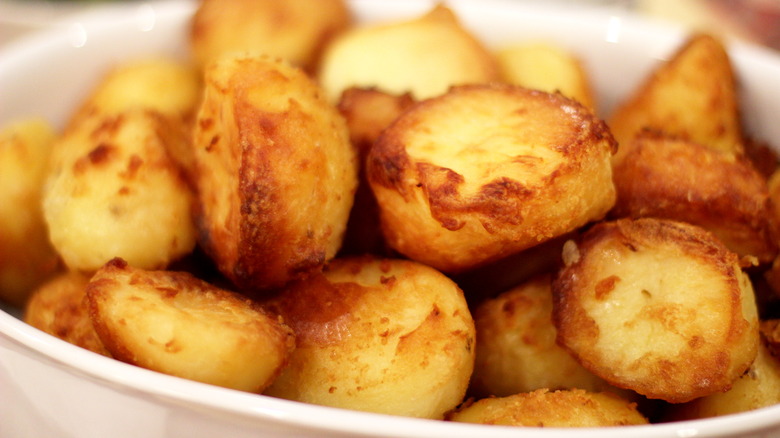For Crispier Results, Try Shaking Your Roast Potatoes
Fish and chips. Steak and kidney pie. Bangers and mash. And how about a nice, creamy, layered trifle for dessert? You may have already guessed that we're talking about British food (via CNN Travel), and while these dishes from across the pond have somehow acquired a reputation for being stodgy, bland, and dull, the truth is that well-executed British food can be a real showstopper. If you've ever cut into a perfect beef Wellington – all medium-rare, juicy beef on the inside and crisp, buttery pastry on the outside — or a perfectly moist, toffee sauce-doused sticky toffee pudding, you already know this to be the case.
And where would we be without British roast potatoes? "Wait, what's British about roast potatoes?" you might be asking. And that means you've never tried the UK approach to roasted spuds, which consists of boiling chunks of taters until they're tender, draining them, and shaking them quite roughly with plenty of fat (preferably animal fat, per Serious Eats, such as beef tallow or lard) before popping them into a hot oven to roast to perfection.
That shaking step produces tons of mini cracks and crags that roast up crispy in the oven
If you're not familiar with British-style roast potatoes, it's time to get to know them — stat. Various recipes for the technique have been published, with the Brit actress Emily Blunt's version crashing the Barefoot Contessa Ina Garten's website when it was uploaded in May 2020, according to People.
The key step common to all British roast potato recipes involves roughing them up after their initial par-boil, according to The Guardian. Once the potatoes have dried off — some recipes, like Blunt's, even call for an extended drying-out on a cooling rack — they should be transferred to a big bowl or pot with the fat they'll roast in and shaken quite roughly. The process — especially when using a starchy variety such as russets or Yukon Golds, as opposed to waxy types — essentially bruises the potatoes' starchy exterior and creates little cracks and fissures that will absorb the fat and get all crispy and flaky in the hot oven.
Some recipes, like that of Serious Eats, add a slip of baking soda to the water in which the potatoes parboil, which breaks down the tubers' pectin and creates an even rougher outer surface. So the next time you're roasting a tray of potatoes, go British-style for a golden-brown, crispy, irresistible result.

